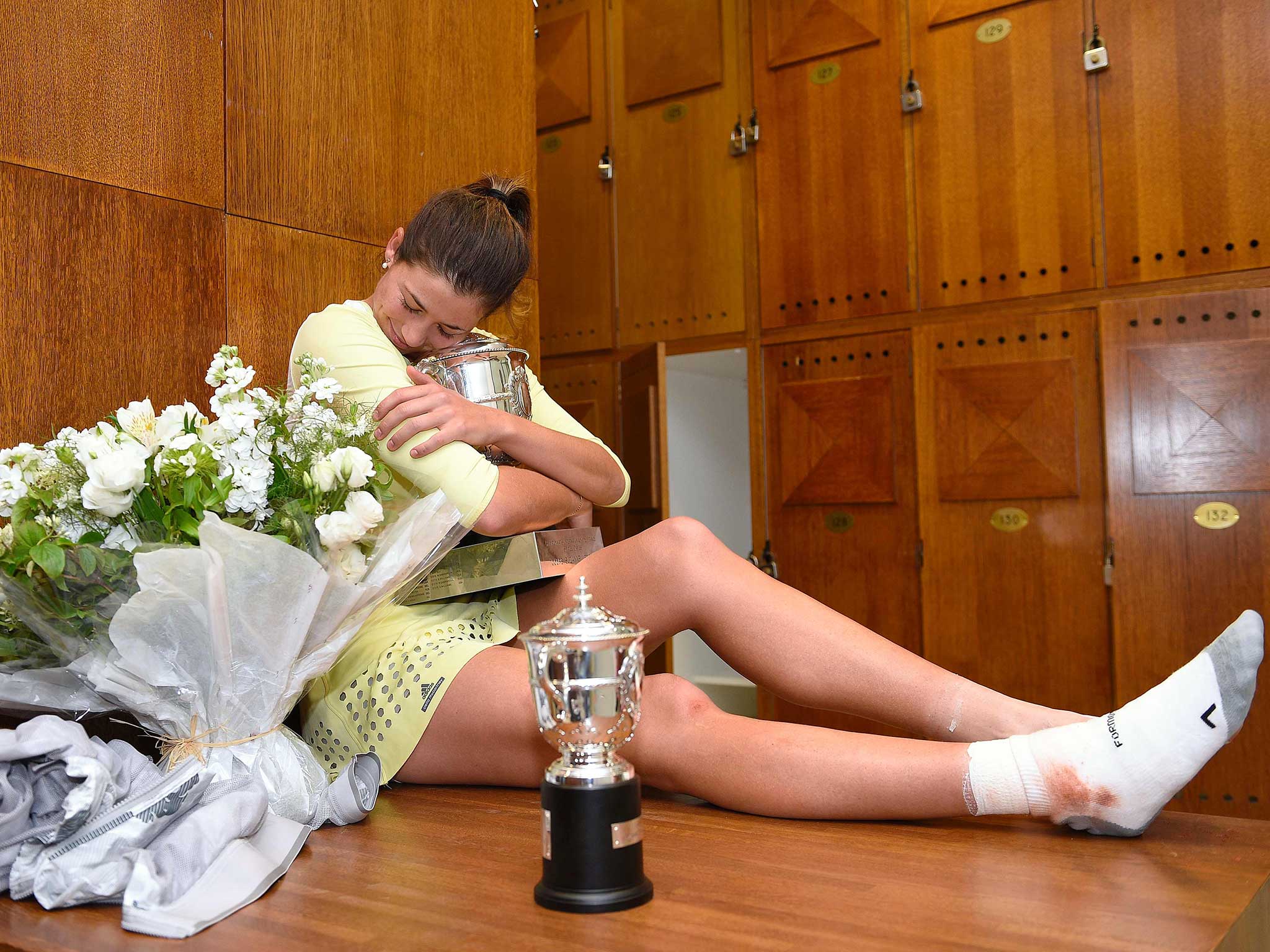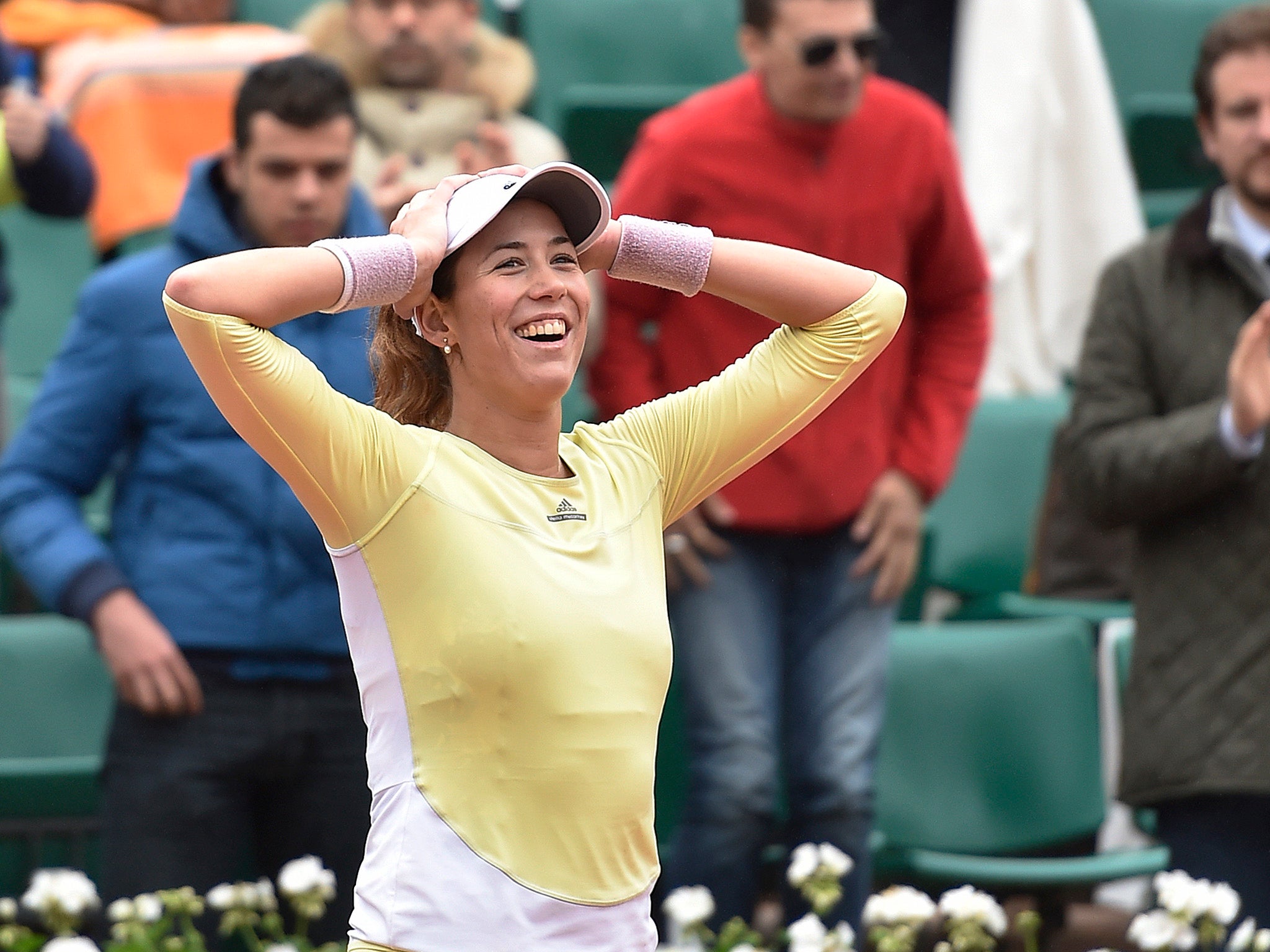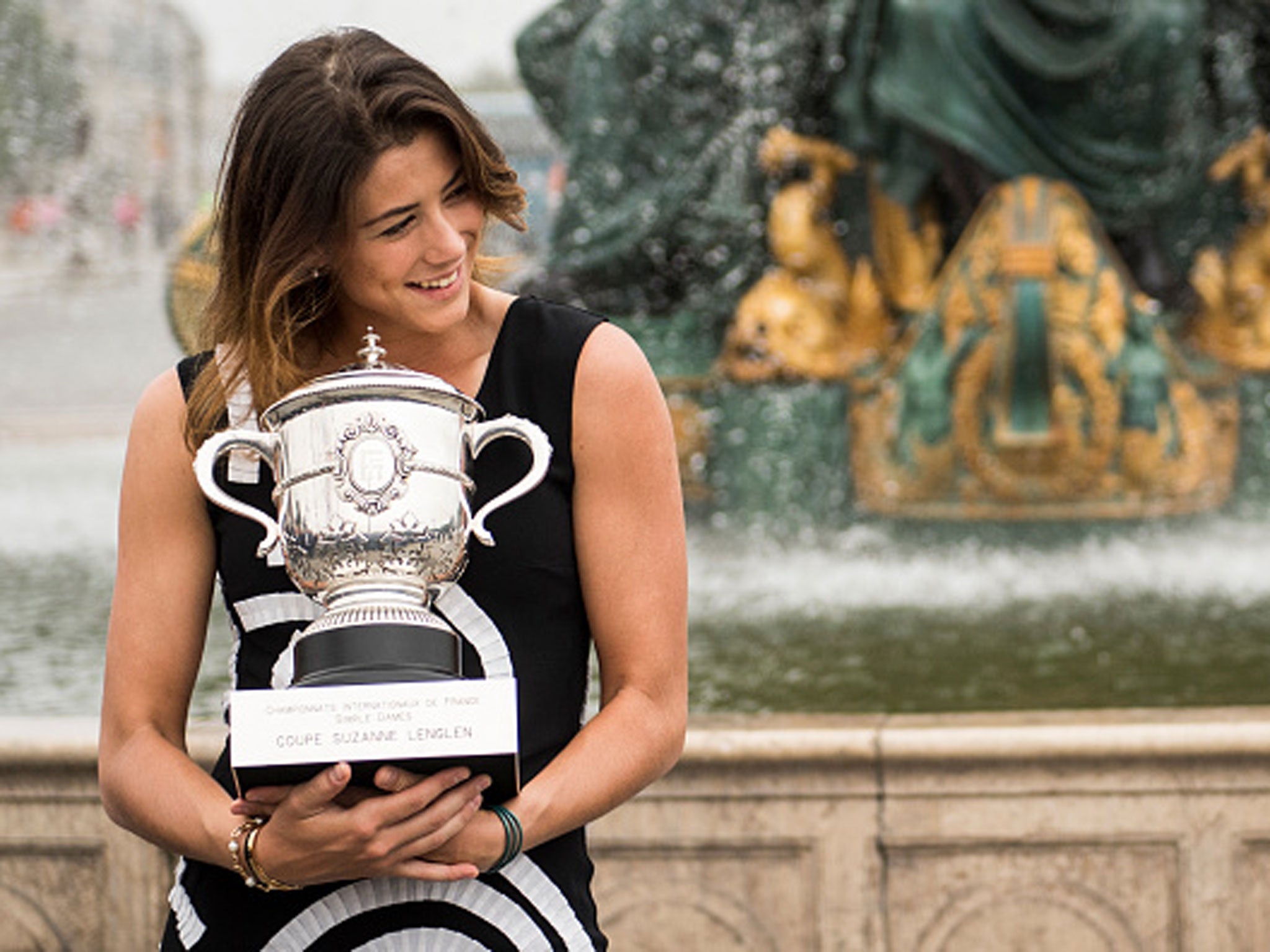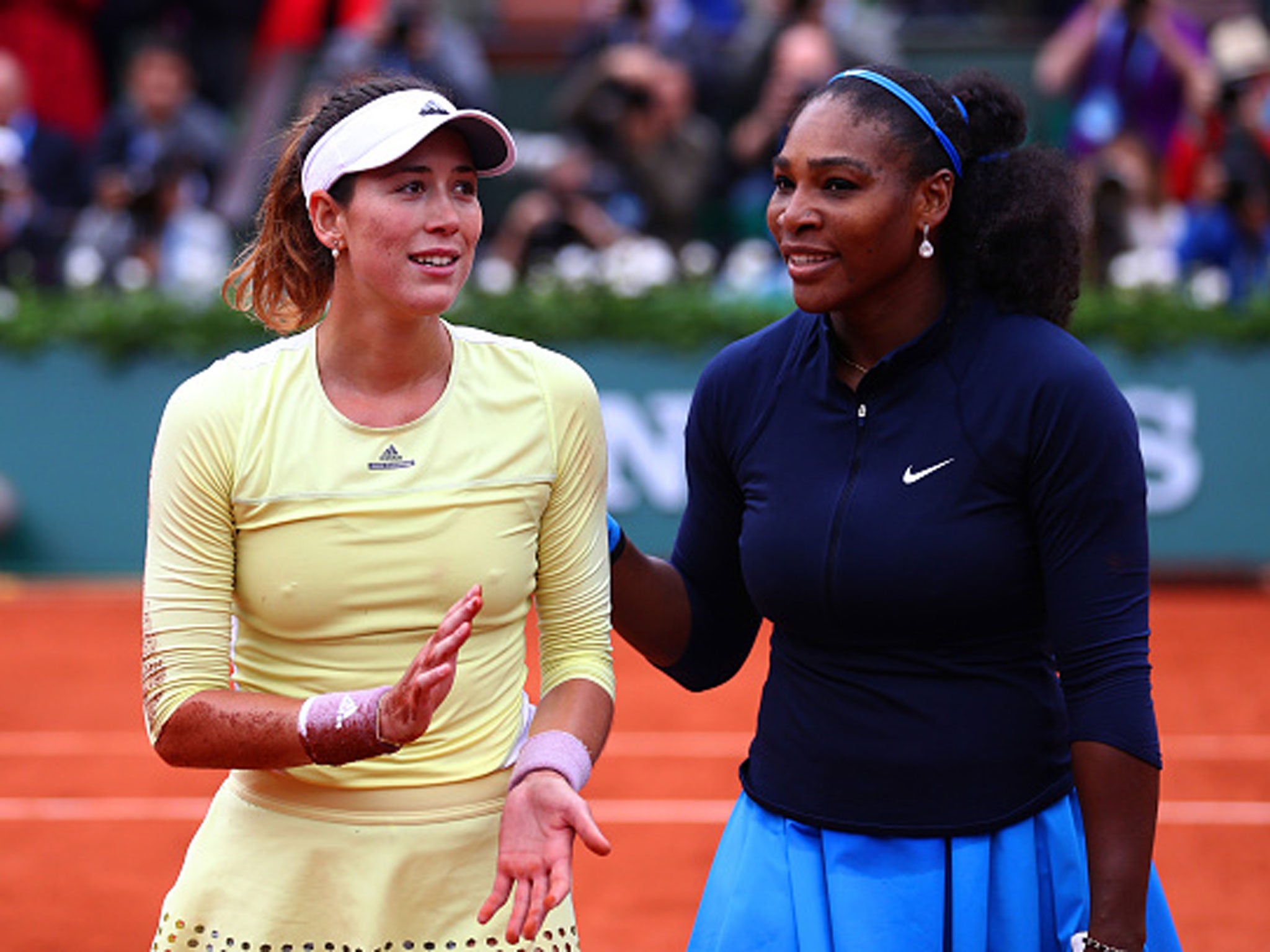Wimbledon 2016: How Garbine Muguruza bounced back to glory after post-SW19 dip
Spaniard's form fell away after last year's final before she won the French Open

Your support helps us to tell the story
From reproductive rights to climate change to Big Tech, The Independent is on the ground when the story is developing. Whether it's investigating the financials of Elon Musk's pro-Trump PAC or producing our latest documentary, 'The A Word', which shines a light on the American women fighting for reproductive rights, we know how important it is to parse out the facts from the messaging.
At such a critical moment in US history, we need reporters on the ground. Your donation allows us to keep sending journalists to speak to both sides of the story.
The Independent is trusted by Americans across the entire political spectrum. And unlike many other quality news outlets, we choose not to lock Americans out of our reporting and analysis with paywalls. We believe quality journalism should be available to everyone, paid for by those who can afford it.
Your support makes all the difference.Reaching a Wimbledon final is not always a guarantee of future success. Just ask Agnieszka Radwanska, Sabine Lisicki and Eugenie Bouchard, the runners-up at the All England Club in 2012, 2013 and 2014.
Although Radwanska has maintained her status as one of the world’s leading players the Pole has yet to reach another Grand Slam final. Lisicki broke into the world’s top 20 after her run to the 2013 final but dropped out of it the following summer and has now slipped to No 81 in the rankings. Bouchard has not won a tournament since the summer of 2014 and now stands at No 48 in the world order.
It might have been tempting to draw some wide-ranging conclusions about the fate of beaten Wimbledon finalists if Garbine Muguruza, the 2015 runner-up, had continued to follow the path she trod in the first three months of this year. The 22-year-old Spaniard, struggling to cope with her own high expectations, won only four matches in her first five tournaments of 2016.
However, Muguruza’s run to the semi-finals in Rome last month suggested her troubles had been only temporary and her subsequent triumph at the French Open confirmed her arrival as the most exciting young talent in the women’s game. When Wimbledon starts on Monday she will be a warm second favourite behind Serena Williams, the woman she beat in the final at Roland Garros, reversing the result of their final at the All England Club last summer.

Muguruza captured the public’s hearts at Wimbledon last year with her mixture of power and elegance on the court and her sense of humour and smiling demeanour off it. Spanish players tend to be clay-court scrappers who win points and matches by outlasting their opponents rather than by blasting them off the court. Muguruza, in contrast, always tries to attack and is willing to take risks.
“She likes to go for her shots and in moments where some other players would be tense she goes for it,” Conchita Martinez, Spain’s Fed Cup captain and the country’s only previous female Wimbledon singles champion, said. “She always goes for it and that’s what she needs to do, because that’s her game.”
Muguruza’s confidence, nevertheless, can be deceptive. “It was very tough at the beginning of the year for Garbine, dealing with the mental side,” Martinez said. “She thought that she had to win every match. She was very tense and nervous in some matches. But if you work hard and settle into yourself and you go for it, at the end things are going to work out.”
Sam Sumyk, Muguruza’s coach, said the world No 2 had turned things around largely through hard work. “We also talked a lot,” he said. “It was a question of taking it step by step, building one little stone at a time. Every time we just tried to do a little bit better. Above all, we learned from every defeat she suffered from the start of the year.

“There were times when we said: ‘We should never do that again.’ Or we said: ‘This is what we need to change. You have the right to lose a match, but you mustn’t lose it playing like that.’ So we put this plan together, putting all the little pieces in place, and then we would see where that took us. It didn’t turn out badly.”
Muguruza, who has a Venezuelan mother and a Spanish father, has always been a big-occasion player. In her very first tournament on the main tour, in Miami four years ago, she beat Vera Zvonareva, then the world No 9, and Flavia Pennetta, the world No 26, before losing to Radwanska in the fourth round. She quickly made a habit of beating top 10 players and in 2014 crushed Williams 6-2, 6-2 at the French Open, which remains the world No 1’s heaviest defeat in Grand Slam competition.
However, Muguruza’s form has often dipped. In the 12 months since she reached last summer’s Wimbledon final she has lost seven times to players ranked outside the world’s top 40.
Muguruza knows that avoiding those drops in form is a priority. “The best players are consistent,” she said. “There is no secret. You can’t be the best player if suddenly you play well and the next day you play badly. But it’s difficult to always perform well, to always go on the court and win and hit great shots. It takes a lot of time and a long learning process.”
In Sumyk, Muguruza has a coach who knows all about guiding players to Grand Slam glory. The Frenchman had a difficult time working with Bouchard in the first half of last year, but before that had coached Victoria Azarenka when the Belarusian won two Australian Open titles and reached No 1 in the world rankings.
“Above all I’ve been lucky,” Sumyk said. “I’ve been in the right place at the right time. It’s been perfect for me, but it’s the player who wins the matches. I always enjoy working with very strong characters. That’s what I like. Garbine has extraordinary mental strength.”

Martinez believes there is plenty more glory to come for Muguruza. “I’m sure she’s going to win more Grand Slams,” the 1994 Wimbledon champion said. “She’s a great player on any surface. That’s the beauty of it. To be a complete player you have to be able to play well on every surface. She grew up on clay but I think she can play even better on hard courts.”
Muguruza has already proved she can perform on grass, though she will go to the All England Club short of match practice. In her only warm-up tournament on grass she was beaten first time out at last week’s Mallorca Open by Kirsten Flipkens.
Martinez thinks the short gap between the French Open and Wimbledon will be a huge challenge for the world No 2 after her exertions in Paris but believes she can shine again at the All England Club. “She’ll do well if she can keep her focus and her mental strength,” Martinez said.
Join our commenting forum
Join thought-provoking conversations, follow other Independent readers and see their replies
Comments